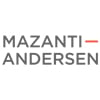-
What are the key rules/laws relevant to M&A and who are the key regulatory authorities?
There are several key laws governing and deem to be relevant to M&A in Egypt including but not limited to:
- Companies Law no. 159/1981 and its executive regulations, as amended;
- Capital Markets Law 95/1992 and its executive regulations, as amended;
- Stock Exchange Listing and De-Listing Rules, as amended.
- Investment Law 72/2017 and its executive regulations, as amended;
- Competition Law 3/2005 as amended by Law 175/2022 and its executive regulations; and
- Central Bank Law 194/2020 and its executive regulations, as amended.
The following authorities are deemed to be the key regulators of M&A activity in Egypt:
- the Financial Regulatory Authority (FRA);
- the General Authority for Investment and Free Zones (GAFI);
- the Egyptian Stock Exchange (EGX);
- the Egyptian Competition Authority (ECA); and
- the Central Bank of Egypt (CBE).
Generally, the regulatory restrictions in Egypt vary from one industry to another. For example, key restrictions can be highlighted, as follows:
- it is necessary to obtain the prior approval of the FRA on the transfer of ownership of a business (eg, acquisition of 10% of the voting rights or shares of a holding company and companies operating in a non-banking financial activity);
- it is necessary to obtain the prior approval of the General Authority of Investments and Free Zones (GAFI) on the transfer of ownership of companies established in a free zone;
- it is necessary to obtain the prior approval of the Central Bank of Egypt to change ownership of an Egyptian licensed bank;
- it is necessary to obtain the prior approval of the Ministry of Health for the transfer of ownership of hospitals;
- it is necessary to obtain the prior approval of the Ministry of Education for the transfer of ownership of schools;
- foreign ownership restrictions apply in some industries such as a commercial agency, where the agency company must be fully owned by Egyptians, while 51% of the share capital of a company operating in importation activity must be owned by Egyptians;
- it is necessary to obtain the prior approval of the Sinai Development Authority on the transfer of shares of a company owning assets or operating in the Sinai Peninsula; and
- it is necessary under the new amendments introduced to the Egyptian Competition Law, to seek the Egyptian Competition Authority’s approval on reportable transactions, as a pre-closing obligation of the parties to a transaction and to also seek the prior approval of the FRA in relation to transactions affecting FRA activities including the non-banking financial and insurance sector.
The above highlighted key restrictions will have to be considered while determining the following parameters of transactions: (i) timelines, (ii) closing conditions, (iii) structure and implementation thereof, (iv) values and considerations, (v) transaction documents and ancillary agreements and (vi) parties’ representations and warranties.
Moreover, the above restrictions are being closely monitored and applied by the relevant governmental authorities, especially in the healthcare, education, fintech and renewable energy sectors. Transactions of these natures can be also evaluated from a national security perspective, though the specific parameters and presumptions can be difficult to quantify. The review of transactions and the parties involved from the national security angle is done on a case-by-case basis with wide spectrum of factors involving the nature of the transaction, the insolvency of the parties involved and the potential national interests or concerns (like competition and abuse of dominance concerns).
On top of the above, the Egyptian legislature has drawn up a package of laws governing the role of bodies and agencies working in the prevention and combating of corruption, as well as a legislative system that criminalises many of the corruption crimes as set out in the UN Convention. Such package of laws is not recent; however, the manner of its implementation has changed and now shows the seriousness of the government in combating corruption, through efforts to amend and enact laws, use digitalization of services provided to the public and use the principles of governance and some matters related to the establishment of some courts to shorten the litigation period.
-
What is the current state of the market?
The Egyptian market presents a mixed outline for business opportunities, characterised by significant potential, tempered by ongoing economic challenges. While Egypt remains an attractive destination for investment, however, its economic conditions and structural reforms heavily influence the current state of business opportunities.
Egypt’s economy has been navigating a period of recovery following bitter financial strain and as part of enhancing its economic and investment climate, Egypt is currently deliberating and finalised several significant reforms and amendments to its companies, capital markets, investment, competition, taxation and importation laws, with the aim of encouraging foreign direct investment in Egypt with additional incentives and less restrictions.
The recent reforms are also backed by several market trends that can be considered as the main pillars of Egypt’s near future reform plan including:
- Efforts of Government Privatization: the government’s State Ownership Policy Document is leading to privatization efforts in key sectors like energy, banking, and industrial manufacturing, creating more M&A opportunities.
- Increase Foreign Directs Investments: cross-border M&A activity has been particularly increasing, with the UAE, the United States, and Saudi Arabia being key acquirers.
- Attract Private Equity Funds: private equity funds, especially those based in the Gulf region, continue to view Egypt as an important market with high growth potential in sectors like fintech, healthcare, and education.
In general, the market is currently showing some resilience and continues to attract interest from investors with the aim of implementing more enhancements and reforms to keep such interest.
-
Which market sectors have been particularly active recently?
Several market sectors have been witnessing notable and increasing activities in M&A, particularly as of the last quarter of 2024 and early 2025 including:
- Fintech: the financial technology sector has been a key player for M&A activity in Egypt, driven by the country’s growing digital economy and efforts to address foreign currency shortages.
- Healthcare and Pharmaceuticals: this sector continues to attract investment opportunities, driven by Egypt’s large population and the constant need and rising demand for healthcare services and products. Investors seek to capitalise on demographic growth and government efforts to improve infrastructure in this particular sector.
- Education: being a consumer-oriented sector, education has been a familiar player in Egypt’s M&A outline due to the large and youthful population driving demand for enhanced educational services. Private equity interest, both regional and international, has backed acquisitions in this sector, a pattern expected to develop during the next period.
- Renewable Energy: the increased interest towards sustainable and clean energy resources, fueled the investors appetite -backed by international financial institutions-in investing in renewable energy sector and expand their portfolios in Egypt.
-
What do you believe will be the three most significant factors influencing M&A activity over the next 2 years?
- Interest/Inflation Rates Projections and FX Stability: in a developed country like Egypt, we are still navigating the trajectory of interest rate adjustments to control inflation. The direction and pace of these adjustments will have a significant impact on the cost of capital for financing deals. Higher interest rates make borrowing more expensive, potentially limiting deals activity. On the other hand, a sustained period of lower rates could positively impact M&A. The ability to forecast future interest rate movements and inflation will be crucial for deals stakeholders and boost confidence in a project’s return on investment and the ability of funds repatriations.
- Efficient On-ground Implementation of Economic Reforms: efficient on-ground implementation ensures that the intended benefits of reforms, such as swift and more coherent laws, improved investors services and enhanced economic opportunities which are effectively delivered to the target population and dealmakers.
- Geopolitical Tensions: ongoing geopolitical tensions, trade disputes, and the need for greater supply chain resilience will continue to influence corporate strategies. Companies are increasingly looking to diversify their supply chains and potentially consolidate operations in more stable regions.
-
What are the key means of effecting the acquisition of a publicly traded company?
The acquisition of listed shares takes place and is effected through the Egyptian Exchange (EGX) as evidenced on its trading screens. Under applicable law, a filing in connection with a tender offer shall be made before the Financial Regulatory Authority (FRA) and the procedures involve submission of a memorandum of information and other ancillary documents, such as a business plan and a valuation report of the shares’ fair market value, which should be reviewed and approved by the FRA.
The tender offer proposal submitted to the FRA must include a confirmation from a licensed bank in Egypt evidencing the availability of the financial resources to fund and cover the offer. Accordingly, unless there is confirmation of financial solvency, the FRA should not accept the offer proposal.
Additional documents as required by the EGX should also be submitted to the registered broker to effect the transfer of the shares with the EGX, such as sale orders and parties’ acknowledgements.
-
What information relating to a target company is publicly available and to what extent is a target company obliged to disclose diligence related information to a potential acquirer?
Generally, other than the basic corporate information provided in companies’ commercial license and registration, other information on financial and assets of private and unlisted companies are not typically available, and companies of such sort do not have an obligation or opt to publicly disclose any information. This is not the case for listed companies who are required by law to disclose wider spectrum of information (eg, their financial positions, ongoing projects and major changes).
There is no specific level of detail for a target company to disclose to a potential acquirer and it remains subject to parties agreement on the due diligence scope, the nature and volume of the transaction and the industry. Generally, and especially in case of listed companies acquisition, acquirers opt having a bigger scope and detailed level of due diligence and to also include wider aspects to the legal due diligence exercise by also conducting commercial, technical, financial and tax due diligence on the target as well.
-
To what level of detail is due diligence customarily undertaken?
There is no specific level of detail for a due diligence exercise, as it varies depending on the acquirer, the target’s activity, and compliance with the laws and regulations of the industry. While some acquirers may opt for limited high-level due diligence with a focus on key red flags, others may prefer to carry out full, detailed due diligence.
Customary legal due diligence usually covers key areas, inter alia, required licensing, full review of the constitutional documents to assess if any restrictions and third-party consents are required pertaining to the material agreements concluded by the target company, an assessment of the employees’ rights, and the general compliance of the target company with Egyptian laws. However, the buyer may require additional/specific due diligence to be exercised by its advisers (eg, technical, tax, financial, commercial, environmental and human resources due diligence exercises). Legal due diligence may be conducted via a virtual data room or in the physical presence of the buyer’s advisers at the target’s premises, but virtual data room due diligence seems to be preferred.
Additionally, vendor due diligence is not commonly conducted in Egypt. However, while buyers do not generally opt to rely on such reports (unless in the case of extensive warranties), sellers are generally advised to consider conducting a seller/defensive due diligence in order to ensure an investable vehicle for investors, which should also have an impact on the evaluation process.
-
What are the key decision-making bodies within a target company and what approval rights do shareholders have?
There are generally three key decision-making bodies within a target company. The board of directors, the shareholders ordinary general assembly and the shareholders extra ordinary general assembly.
The shareholders have the right to approve on vote several matters, depending on the competency of the relevant body. For instance, shareholders can vote on matters related to approving the annual financial statements, board of directors appointment and related parties transactions in an ordinary general assembly while matters like issuance and disposal of shares, amendment of company’s statutes and engagement in other investments are voted on in an extra ordinary general assembly.
-
What are the duties of the directors and controlling shareholders of a target company?
Directors must act within the powers conferred upon them by the shareholders and the company’s articles of association and only for the purposes for which those powers were given. Directors have fiduciary duties towards the shareholders, and they must maintain the company’s and shareholders’ interests, while ensuring that there is no conflict of interest between their actions and those of the company.
These are the general obligations of the directors who are either nominated as individual and in personal capacity or representing the direct interest of the shareholders in a target’s company management.
Under applicable laws, the controlling shareholders duties or involvement in corporate governance do not represent a legal responsibility that falls thereunder. The controlling shareholders have the right to such involvement, through active participation and voting in the target company’s general assemblies of the shareholders whereby this involvement represents supervision of the target company’s directors duties.
Shareholders can agree on further directors duties, key performance indicators and control mechanics in definitive agreements that are legally binding on the parties involved and on the target company and its directors.
In case of listed target companies, during the period between an offer is published after ratification by FRA and the outcome of this offer is announced, the directors are prohibited from taking any action that may be viewed as materially adverse and that can affect the target’s assets and financial position. During this period, the directors shall be also meticulous in terms of disclosing any information related to the offer. Controlling shareholders during this period shall also refrain from disposing of their shares (unless for the purpose of the offer) and shall not jeopardise any minority shareholders rights.
-
Do employees/other stakeholders have any specific approval, consultation or other rights?
Egyptian law does not oblige employers to consult or secure the prior approval of employees during the acquisition process. However, the applicable laws restrict an employer’s ability to make changes to the workforce during the acquisition. Acquisition parties to also bear in mind that employees’ rights (especially when associated with their acquired rights) shall remain protected and cannot be limited or deviated by the employer. It is also customary for listed companies during the disclosure of a tender offer, to include relevant employment undertakings to which the buyers will undertake to preserve and maintain for a limited period.
-
To what degree is conditionality an accepted market feature on acquisitions?
The level of conditionality depends on the outcome of the due diligence exercise, which is likely to identify certain mandatory and suspensory regulatory conditions (eg, FRA approval, GAFI approval and recently the consent of the Egyptian Competition Authority), along with other conditions, such as third-party consents or shareholder approval. The material adverse change/effect is one of the key elements of the SPA and is heavily negotiated between the parties, which may trigger the termination right of the buyer. Indeed, one of the most common conditions observed in the SPA is third-party consent, if it is provided under a material contract to which the target is a party.
-
What steps can an acquirer of a target company take to secure deal exclusivity?
Similar to what could be adopted in deals within other jurisdictions, an acquirer can use several steps and approaches to secure deal exclusivity, which are acceptable from contractual and legal standpoints:
- Sign Non-Binding Offer, Letter of Intent or Exclusivity Agreement: these legally binding documents prevent the target from soliciting or entertaining offers from other parties for a specified period, giving the acquirer time to conduct due diligence and finalise the deal. This will also limit sharing sensitive deal details with other potential bidders, indirectly discouraging competition during initial talks phase.
- Suggest and leverage Earnouts or Contingent Payments: offering creative deal structures, such as earnouts tied to future performance, can make the proposal more appealing, reducing the target’s incentive to explore other opportunities.
- Secure early financing: demonstrating that financing is in place, reassures the target of the acquirer’s ability to close the deal swiftly, making it less appealing for the target to entertain less certain suitors.
- Impose Break-Up Fees: propose a break-up fee in the deal terms, where the target will owe the acquirer a penalty if they back out to pursue another offer. This raises the cost of abandoning the acquirer’s proposal.
-
What other deal protection and costs coverage mechanisms are most frequently used by acquirers?
- Indemnity: the target (or its shareholders) agrees to indemnify the acquirer for losses arising from breaches of warranties, misrepresentations, or specific liabilities identified during due diligence. Indemnities are often capped and time-limited, with baskets or thresholds for claims.
- Earn-Out: part of the purchase price is contingent on the target meeting certain performance milestones post-closing.
- Termination Rights: termination rights are vested in both parties on the occurrence of certain events specified under the acquisition documentation. Material adverse change/effect and non-satisfaction of conditions precedent (eg, not obtaining the prior approval of the regulator or third-party consents) are key events that can trigger termination of the transaction, unless waived by the aggravated party. Long-stop dates vary depending on the contractual agreement of the parties and the expected timeframe during which each party will need to fulfil its pre-closing obligations especially obligations related to securing governmental approvals and consents.
- Warranty & Indemnity Insurance and Purchase Price Retention: although not common in Egypt and sellers normally do not provide any further protections, other than the ordinary core and business warranties, nonetheless, the parties may agree to cover certain risks post-closing through financial adjustments. For example, operational licenses and tax-related risks are a common concern among businesses in Egypt. Thus, one common approach to safeguard the acquirer is to retain a portion of the consideration for an agreed period to cover any potential tax exposure. Acquirers tend to make deferred payments, pricing adjustments and escrow arrangements rather than resort to indemnity claims covering potential liabilities.
-
Which forms of consideration are most commonly used?
Consideration is dependent on the target’s shares. For unlisted shares, the consideration may be in cash and/or in kind, while for listed shares, the consideration for a mandatory tender offer may be all in cash, or a mixture of cash and shares.
-
At what ownership levels by an acquirer is public disclosure required (whether acquiring a target company as a whole or a minority stake)?
In application of the Executive Regulations of the Capital Markets Law, the main shareholder is defined as any shareholder owning 10% or more of the share capital of the company, whether directly or indirectly through its related parties. According to the EGX Listing Rules, the main shareholders of a company whose shares are listed on the EGX are required to undertake a number of disclosures and reporting requirements, mainly including the following:
- the main shareholders and their related parties shall disclose to EGX their indirect ownership if it reaches 25% or more of the company’s share capital, or of the capital of any other entity holding shares in the company;
- the main shareholders and their related parties shall notify EGX if their shareholding exceeds or falls below 5% and its multiples of the company’s share capital or voting rights (including shares acquired via the purchase of subscription rights); such disclosure should include their direct ownership of shares or relevant global depository certificates;
- the main shareholders shall disclose to EGX their ownership stake (directly or indirectly) and their related parties every six months; and
- the main shareholders and their related parties shall disclose to EGX their future investment plan and the main shareholder’s views in relation to the management of the company if their acquired percentage reaches 25% or more of the company’s capital or voting rights.
-
At what stage of negotiation is public disclosure required or customary?
There is no statutory requirement to make any public announcement and/or disclosure for target companies whose shares are not listed on the EGX. Public announcements following completion in this case, is subject to the transaction’s parties agreement and their commercial and business assessment.
This is not the case for publicly listed companies where the public disclosure of negotiation is strictly compulsory. In case of publicly listed companies, a disclosure to FRA and EGX is typically required in cases where:
- the potential buyer has notified the target company of its intent to start a tender offer, promptly upon becoming notified of the same;
- a binding or non-binding memorandum of understanding or offer or letter of intent has been signed between the parties;
- a binding or non-binding arrangement for conducting due diligence on the target company has been signed; or
- negotiations and discussions regarding a potential mandatory tender offer have taken place.
-
Is there any maximum time period for negotiations or due diligence?
There is no customary period for negotiations or due diligence in case of an acquisition of shares in unlisted company.
However, for listed companies, the acquirer shall proceed with launching a mandatory tender offer within maximum 60 working days from the disclosure date to FRA of the ongoing negotiations or the kin-off of a due diligence exercise on the target company.
-
Is there any maximum time period between announcement of a transaction and completion of a transaction?
There is no customary period in case of an acquisition of shares in unlisted company as completion depends on the satisfaction of the transaction conditions as agreed between the parties.
For listed companies, there is no customary period between disclosure and completion, as the mandatory tender offer execution only starts after obtaining FRA’s unconditional approval on the offer and depends on the level of FRA’s requirements satisfaction by the acquirer and the existence of counter tender offers. Accordingly, completion normally takes place within 5-7 working days as of the FRA issuance of its approval on the mandatory tender offer.
-
Are there any circumstances where a minimum price may be set for the shares in a target company?
This possibility is more common in acquisition on shares of unlisted target company where a minimum price can be set and determined based on a fair value study prepared by an independent financial advisor to justify the minimum price which is vital vis-à-vis EGX and tax authority as well.
This is less common in acquisition on shares of a listed target company, especially for active shares, as the price is normally set using the average closing price of the shares on EGX.
-
Is it possible for target companies to provide financial assistance?
Providing financial assistance by target companies is not possible unless they are holding companies or investment vehicles as defined by the applicable law.
On a related front and with respect to financing from local banks for the acquisition of local companies (acquiring more than 50 per cent of a target or any other controlling interest), the Central Bank of Egypt issued Circular 501/2016 on 3 March 2016, which sets out the legal framework for extending loans by such banks. Except for the listed companies due to disclosure requirements, the decree requires, among other things, that independent experts conduct legal and financial due diligence to ensure the financial capabilities of the acquirer, the target (for an acquisition) or the surviving company (for a merger) to repay the extended loans. The decree further elaborates on the amount of financing depending on the nature of the acquirer (ie, a company operating in the same field or an investment fund). Although the decree refers to companies in general, in practice, it is somewhat irrelevant to the acquisitions of listed companies during a mandatory tender offer. The decree applies generically to local targets but must also be considered in cases of local financing to acquire a local company.
-
Which governing law is customarily used on acquisitions?
The acquisitions governing law depends on the type of the target company, the establishment law of the target company, whether it is listed or not in addition to the type of acquisition (shares or assets acquisition). Companies Law, Capital Markets Law and Investment Law would be typically applicable in case of acquisitions of shares, noting that the EGX Listing and De-Listing Rules will apply in case the target company is a listed company. If the acquisition is an asset sale, the applicable law would differ based on the nature and type of the asset.
Practically, it is customary for transaction parties to agree on a different governing law in the transaction documents, however, the execution of the transaction and all associated process, documentation, timelines and verifications from local perspectives shall take place within the local applicable laws and regulations. Worth noting that several matters, especially in relation to employment and real estate are strictly governed by Egyptian law.
-
What public-facing documentation must a buyer produce in connection with the acquisition of a listed company?
In application of the Executive Regulations of the Capital Market Law, in case of acquisition of a listed company through a mandatory tender offer, the acquirer has to submit a memorandum of information to the FRA that includes, among other disclosures, (i) a summary of the financial statements of the acquirer for the last three financial years (save for a cash tender offer), (ii) the acquirer’s plan and general intentions vis-à-vis the target minority shareholders, (iii) basic corporate data of target and acquirer and (iv) a confirmation from a licensed bank in Egypt evidencing the availability of the financial resources to fund and cover the offer.
While generally there is no legal requirement to disclose transaction documents, in the case of an acquisition of shares through the submission of a tender offer, the memorandum of information submitted by the acquirer to the FRA should include details of any related agreements concluded by the acquirer, or of which the acquirer is aware.
-
What formalities are required in order to document a transfer of shares, including any local transfer taxes or duties?
Any transfer of shares of in a joint stock company must take place through the Egyptian Exchange (EGX), regardless of whether or not the shares are listed. A licensed broker should be appointed to execute the share transfer in accordance with the transfer procedures set out by the EGX and the Financial Regulatory Authority (FRA).
Any transaction exceeding EGP 60 million must be pre-approved by the EGX Pricing Committee, which convenes on a weekly basis to analyse and resolve on each transaction.
If the value of the transaction exceeds EGP100,000 or if the transfer involves a foreign party, the consideration of the transfer of unlisted shares must be deposited with a bank licensed by the Central Bank of Egypt (CBE).
For the transfer of listed shares of a joint stock company, the Capital Markets Law provides that a person may acquire up to one third of the share capital or voting rights of a listed company through open market transactions, voluntary tender offers or block trades. If the threshold of one third of the share capital is exceeded, whether through acquiring listed shares or shares in a company that has previously offered its shares by public subscription, the acquirer is obliged to submit a mandatory tender offer to the FRA to acquire up to 100% of the share capital of the company.
With respect to applicable taxes, other than the capital gain tax, which is borne by the sellers solely, a stamp duty tax will apply in result of the transfer of shares.
Stamp duty tax is applied on the total proceeds realized from selling any kind of securities. Sellers and buyers shall each be subject to 0.3% of the value of the transaction without deducting any costs if gross proceeds from the transfer represent 33% or more of the total entity’s capital. If the gross proceeds from the sale of securities represent less than 33% of the total entity’s capital, the following rates should apply: (i) 0.125% to be borne by the non-resident seller and 0.125% to be borne by the non-resident buyer and (ii) 0.05% to be borne by the resident seller and 0.05% to be borne by the resident buyer.
Additional fees like EGX, FRA and brokerage fees are applied within minimal percentage amongst buyers and sellers in result of the transfer of shares.
-
Are hostile acquisitions a common feature?
While hostile acquisitions are permitted in principle, yet they are not a common feature in the Egyptian market.
-
What protections do directors of a target company have against a hostile approach?
Protection measures for directors against hostile acquisitions are not a common feature in the Egyptian market. The directors’ roles, responsibilities or protections measures in response to hostile acquisitions are not regulated or recognised in Egyptian law.
-
Are there circumstances where a buyer may have to make a mandatory or compulsory offer for a target company?
In application of the Executive Regulations of Capital Markets Law, the acquisition of a stake in companies whose shares are listed on EGX requires the acquirer to launch a mandatory tender offer, with a minimum acceptance condition that is usually 51% or 75%, as the case may be.
-
If an acquirer does not obtain full control of a target company, what rights do minority shareholders enjoy?
Unless higher percentages and additional rights are agreed otherwise in any existing definitive agreements between the acquirer and minority shareholders, the minority shareholders enjoy some rights that are vested to them by the Companies Law and company’s articles of association including the right of shareholders who hold at least 5% of the company’s share capital to request the suspension of the general assembly’s resolutions, noting that such request should have solid and valid grounds, such as that the resolutions should be harmful to the minority shareholders or were issued for the benefit of a certain group of shareholders or for the personal benefit of board members or other parties.
Minority shareholders holding at least 10% of the share capital are entitled to request the inspection of the company regarding any material breach committed by the board of directors or by the company’s auditor. Additionally, the shareholders are entitled to examine the books and records of the company.
Minority shareholders holding 5% of the share capital of a company are entitled to cause the board of directors to call an ordinary general assembly meeting to convene and include specific items on the agenda of the meeting.
Minority shareholders holding 10% of the share capital of a company are entitled to cause the board of directors to call an extraordinary general assembly to convene and include specific items on the agenda of the meeting.
Minority shareholders holding 25% or more of the share capital of a company may veto extraordinary general assembly resolutions relating to capital increases or decreases or liquidation/dissolution of the company before its term, or a change of the company’s objectives.
-
Is a mechanism available to compulsorily acquire minority stakes?
In case of listed target companies, a recent amendment has been introduced to the Capital Market Law with respect to the thresholds requiring submission of a mandatory offer to the minority. The new amendment introduced certain thresholds that can be summarised, as follows:
- a buyer acquiring one third (whether directly, indirectly or through related parties) of the share capital or voting rights in a listed company;
- a buyer owning one third (whether directly, indirectly or through related parties) of the share capital or voting rights in a listed company and increasing their existing equity/voting rights to 50%, or acquiring more than 5% within 12 consecutive months;
- a buyer owning 50% (whether directly, indirectly or through related parties) of the share capital or voting rights in a listed company, and increasing their existing equity/voting rights to two thirds, or acquiring more than 5% within 12 consecutive months; or
- a buyer owning two thirds (whether directly, indirectly or through related parties) of the share capital or voting rights in a listed company and increasing their equity/voting rights to three quarters, or acquiring more than 5% within 12 consecutive months.
In case of unlisted target companies, acquiring minority stakes is subject to arrangement between the parties that they ultimately agreed on in the initial transaction agreements. In that case the acquisition will be subject to the terms agreed between the parties in the initial transaction agreements (if any) and the mechanism thereof will depend on the type of the target company and the governing applicable laws.
Egypt: Mergers & Acquisitions
This country-specific Q&A provides an overview of Mergers & Acquisitions laws and regulations applicable in Egypt.
-
What are the key rules/laws relevant to M&A and who are the key regulatory authorities?
-
What is the current state of the market?
-
Which market sectors have been particularly active recently?
-
What do you believe will be the three most significant factors influencing M&A activity over the next 2 years?
-
What are the key means of effecting the acquisition of a publicly traded company?
-
What information relating to a target company is publicly available and to what extent is a target company obliged to disclose diligence related information to a potential acquirer?
-
To what level of detail is due diligence customarily undertaken?
-
What are the key decision-making bodies within a target company and what approval rights do shareholders have?
-
What are the duties of the directors and controlling shareholders of a target company?
-
Do employees/other stakeholders have any specific approval, consultation or other rights?
-
To what degree is conditionality an accepted market feature on acquisitions?
-
What steps can an acquirer of a target company take to secure deal exclusivity?
-
What other deal protection and costs coverage mechanisms are most frequently used by acquirers?
-
Which forms of consideration are most commonly used?
-
At what ownership levels by an acquirer is public disclosure required (whether acquiring a target company as a whole or a minority stake)?
-
At what stage of negotiation is public disclosure required or customary?
-
Is there any maximum time period for negotiations or due diligence?
-
Is there any maximum time period between announcement of a transaction and completion of a transaction?
-
Are there any circumstances where a minimum price may be set for the shares in a target company?
-
Is it possible for target companies to provide financial assistance?
-
Which governing law is customarily used on acquisitions?
-
What public-facing documentation must a buyer produce in connection with the acquisition of a listed company?
-
What formalities are required in order to document a transfer of shares, including any local transfer taxes or duties?
-
Are hostile acquisitions a common feature?
-
What protections do directors of a target company have against a hostile approach?
-
Are there circumstances where a buyer may have to make a mandatory or compulsory offer for a target company?
-
If an acquirer does not obtain full control of a target company, what rights do minority shareholders enjoy?
-
Is a mechanism available to compulsorily acquire minority stakes?





























